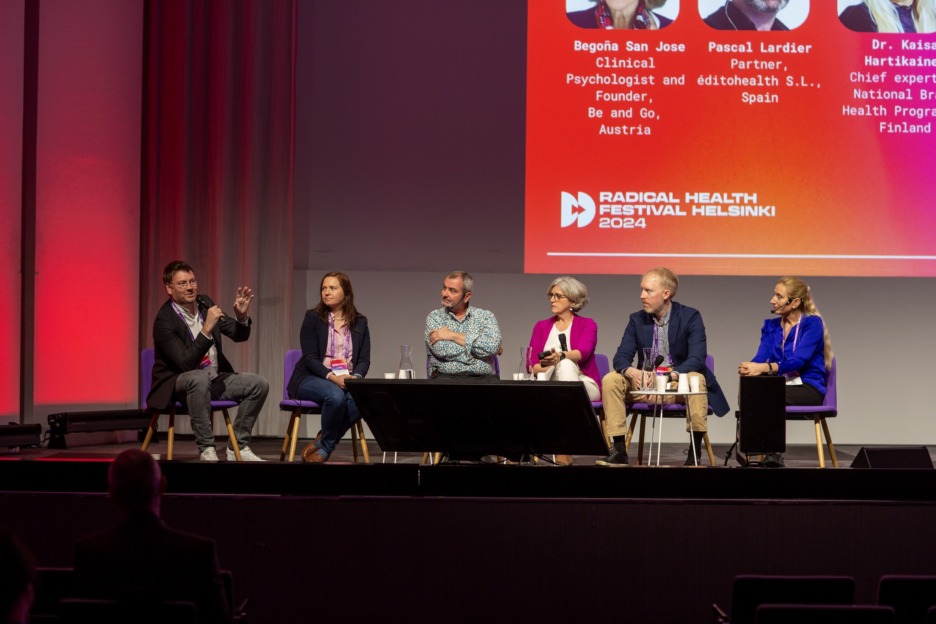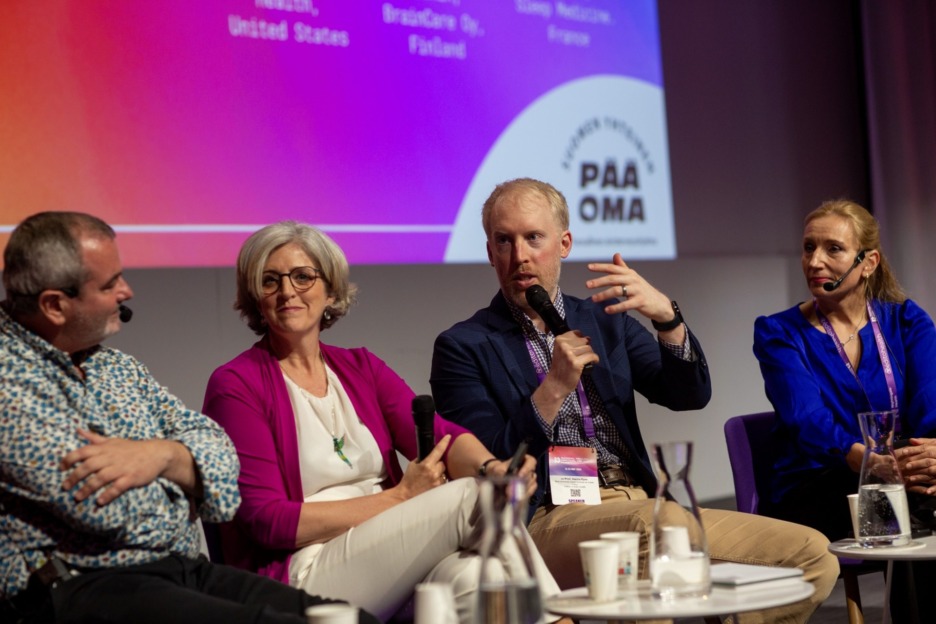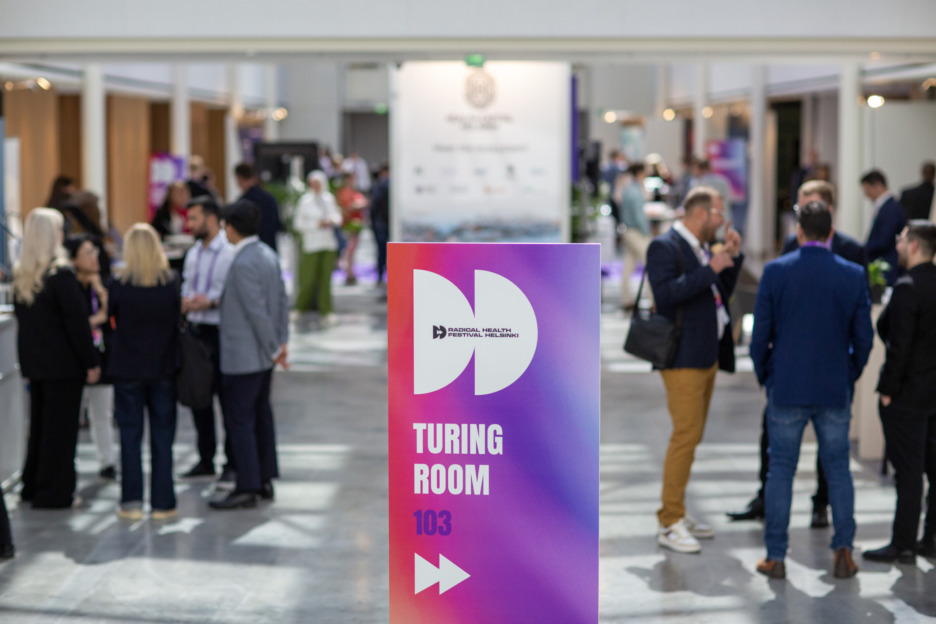Precision Health – Unbound!

In a world where technology no longer knows boundaries, our approach to health is undergoing a radical transformation.
Precision health represents a radical shift from reactive, one-size-fits-all medicine to proactive and personalised care, driven by data, digital tools, and individual contexts. Precision health, unlike precision medicine, is about precision starting before the onset of diseases or complications. This isn’t just a future vision — it’s already happening. And as a result, health is no longer confined to hospitals and medical settings. It’s anywhere anytime — or health unbound!
Health Anywhere Anytime
New sensors, wearable trackers, and connected devices are transforming our everyday environments into personalised wellness ecosystems. From smartwatches monitoring our vitals on our wrists, to sensors in our mattresses analysing sleep quality, to emerging implantable devices enabling continuous yet invisible surveillance, the boundaries of traditional health and care are dissolving. Health is about to fuse with the fabric of our lives. These tools go far beyond convenience. They are essential to give prevention — the very backbone of precision health — the attention it deserves. By continuously monitoring vitals and dynamically assessing risk factors, these devices produce a constant stream of real-time data that can promptly alert both individuals and healthcare professionals when targeted medical interventions are warranted. They enable us to anticipate rather than react, treating health as a dynamic journey rather than a series of punctual medical appointments. Of course, as we discussed in a previous blog titled “Data – Lifeblood of a Precision Health System”, extracting meaningful insights from such complex and diverse datasets demands a robust and ethical AI infrastructure. However, the opportunities and challenges of health unbound go beyond data infrastructures.
Workplace: A New Hub for Health and Wellness
We spend approximately one-third of our lives at work, making the workplace a critical — yet often overlooked — arena for health and wellness. Integrating health technologies into the workplace isn’t just a possibility; it’s becoming a necessity. From ergonomic sensors that track postures to mental health apps that offer stress management in real time, smart workplaces are redefining occupational health. Employers are beginning to move beyond perks like gym memberships to embedding wellbeing into the daily rhythm of work. This shift supports healthier, more engaged teams — and fully aligns with the ethos of health unbound. After all, employers have strong incentives to foster wellbeing, and we should expect to see more of them actively participating in digital health developments.
Smart Cities, Healthy Citizens
Smart cities extend health and wellness far beyond the individual. Our environments shape our health just as much as our genes or habits. Elements like urban design, transport systems, clean air, green areas, and access to nutritious food play a critical role in population health. Smart cities, equipped with environmental sensors and community-focused health services, represent the most ambitious embodiment of health unbound — where wellbeing is embedded into the very infrastructure of daily life. That’s why the Radical Health Festival’s partnership with the City of Helsinki to host a Health and the City symposium is both timely and essential.
Monitoring vs Privacy: Finding the Right Balance
One of the core challenges of using these technologies lies in balancing the potential of continuous monitoring with citizens´ rights. As the Internet of Things evolves into the Internet of Health, concerns around privacy and data protection become even more pressing. Yes, pervasive monitoring can dramatically improve prevention and personalisation, but never at the expense of privacy and freedom. Health anywhere anytime is about encouraging health, not about punishing behavioural setbacks. We must strike a careful balance — building trust through transparency, ethical data governance, reliable cybersecurity and citizen-centricity. Just as importantly, the accuracy and reliability of these devices must be assured. Precision health cannot exist without precision data.
Liability and System Readiness
Another critical — yet often overlooked — issue is liability. If connected devices and AI deliver a constant stream of health alerts, what does that mean for clinicians? Are health systems now responsible for providing 24/7 wellness oversight? What happens if an alert is missed and someone’s condition worsens? We need to rethink care delivery models — maybe including the hiring of a good number of data specialists to help clinicians interpret alerts and decide when to intervene. While the quality and accuracy of consumer technologies are rapidly converging with traditional medical-grade devices, we must remain cautious. The same tools that can save lives can also flood health systems with false positives, adding pressure to already stretched healthcare professionals.
Other key considerations when deploying continuous monitoring include:
- Health equity: Access to technology must not widen health disparities. Inclusive design and equitable distribution are essential.
- Digital literacy: People need support in understanding and using health tech tools safely and effectively. Existing health equity gaps must not be worsened by new digital gaps.
- Behavioural nudging and community engagement: Devices can gently prompt healthier choices through insights, reminders, and incentives — a powerful driver for change. Nowadays, we all pretty much know what we need to do: sleep well, exercise, adopt a balanced diet, stay socially engaged, etc. — yet prompts are quite often not enough to make us change our ways. Citizens must be partners, not just users.
- Interoperability: Data from different sources (wearables, EHRs, public health systems) must communicate effectively to create a holistic view of health and better target interventions.
- Policy and regulation: Policymakers must keep pace with technology, ensuring frameworks protect citizens while encouraging innovation.
Health Unbound: A Vision Worth Realising
Health unbound is not just a slogan — it’s a call to reimagine health as a pervasive, continuous experience embedded in our homes, cities, work, and, more generally, the fabric of our lives. It reflects the core promise of precision health: a lifelong, forward-looking approach that prioritises prevention, personalisation, participation, and data-driven decision-making. It’s time to let go of outdated boundaries and embrace a new reality — where everywhere is a clinic, everyone is a key partner, and every moment is an opportunity for better health.
Pascal Lardier, Principal, éditohealth and Content Lead, Radical Health Festival




